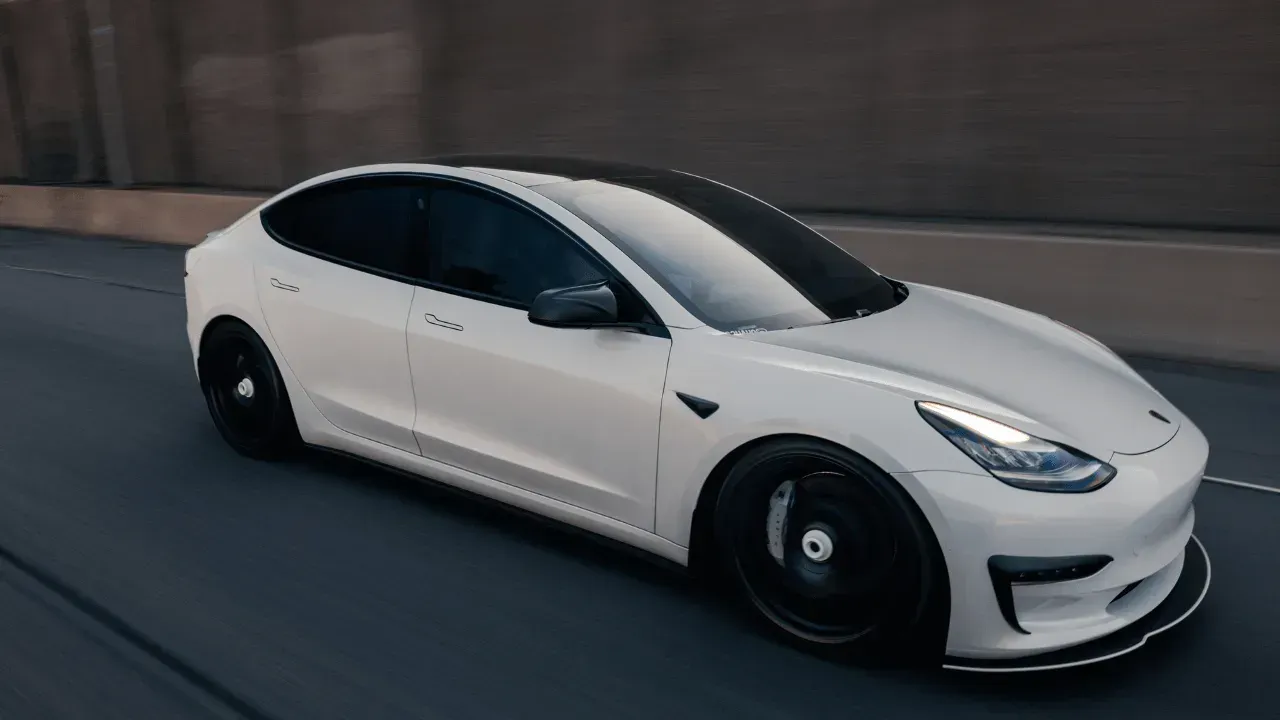Colorado Food Truck Insurance

8:30am - 5:00pm Mon-Fri
We'll Reply in 15min*
Index
Contact Us
Phone
303-421-5123
Location
9035 Wadsworth Parkway
Suite 2730B
Westminster, CO 80021
Starting a food truck business in Colorado can be an exciting venture. The vibrant food scene, coupled with the flexibility of mobility, makes it an attractive option for many entrepreneurs. However, like any business, food trucks come with their own set of risks and challenges. One of the most critical aspects of running a food truck is ensuring that it is adequately protected. This is where food truck insurance comes into play. Understanding the ins and outs of food truck insurance is essential for safeguarding your investment and ensuring compliance with state regulations.
Understanding Food Truck Insurance
Food truck insurance is a specialized type of coverage designed to protect food truck operators from various risks associated with their business. This insurance typically encompasses several different types of coverage, each addressing specific needs and potential liabilities.
What Does Food Truck Insurance Cover?
Food truck insurance generally includes several key components:
- Liability Coverage: This protects against claims of bodily injury or property damage that may occur as a result of your food truck operations. For example, if a customer slips and falls at your food truck, liability coverage can help cover legal fees and medical expenses.
- Property Coverage: This covers damage to your food truck and its equipment due to events like theft, vandalism, or natural disasters. Given the significant investment in kitchen equipment and the truck itself, this coverage is crucial.
- Business Interruption Insurance: If your food truck is unable to operate due to a covered event, this insurance can help replace lost income during the downtime.
Why Is Food Truck Insurance Important?
Having the right insurance is not just a good business practice; it is often a legal requirement. Colorado law mandates that all vehicles, including food trucks, carry a minimum level of liability insurance. However, the risks associated with operating a food truck extend beyond just vehicle accidents. Food truck operators face unique challenges, such as food safety issues, equipment breakdowns, and varying local regulations that can impact operations.
Without adequate insurance, a single incident could lead to financial ruin. For instance, if a customer suffers food poisoning after eating from your truck, the resulting legal claims could be devastating without proper liability coverage. Therefore, understanding and investing in the right insurance is not just wise; it is essential for long-term success.
Moreover, food truck insurance can also include coverage for employee-related risks, which is particularly important as many food truck operators hire staff to help manage their operations. Workers' compensation insurance is a vital component that protects both the employer and employees in case of work-related injuries. This coverage not only ensures that employees receive necessary medical care but also shields the business from potential lawsuits stemming from workplace accidents.
Additionally, food truck operators must navigate the complexities of health regulations and permits, which can vary significantly from one municipality to another. Insurance can provide guidance and support in meeting these regulatory requirements, ensuring that your business remains compliant while minimizing the risk of costly fines or shutdowns. By securing comprehensive food truck insurance, operators can focus on what they do best—serving delicious food—while having peace of mind knowing they are protected against the unpredictable nature of the food service industry.

Types of Coverage for Food Trucks
When considering food truck insurance, it is important to understand the various types of coverage available. Each type addresses different aspects of the food truck business, ensuring comprehensive protection.
General Liability Insurance
General liability insurance is often the cornerstone of any food truck insurance policy. It protects against third-party claims for bodily injury, property damage, and personal injury. This coverage is essential for any business that interacts with the public, as it helps mitigate the financial risks associated with accidents and injuries. For instance, if a customer slips and falls near your food truck, this insurance can cover legal fees and medical expenses, allowing you to focus on serving delicious meals rather than worrying about potential lawsuits.
Commercial Auto Insurance
Since food trucks are essentially mobile restaurants, commercial auto insurance is critical. This type of insurance covers the vehicle itself, including damages from accidents, theft, and vandalism. Additionally, it provides liability coverage in the event of an accident while the food truck is in operation. It's worth noting that food truck operators often face unique challenges, such as navigating crowded streets and dealing with unpredictable weather conditions. Having robust commercial auto insurance can provide peace of mind, knowing that you're protected against unforeseen incidents that could disrupt your business.
In Colorado, food truck operators must also comply with state-specific insurance requirements, which typically include higher liability limits than personal auto insurance policies. Therefore, it is crucial to work with an insurance agent who understands the unique needs of food truck businesses. A knowledgeable agent can help you select the right coverage levels and additional endorsements, such as coverage for equipment breakdown or food spoilage, which can be particularly important for those who prepare fresh ingredients daily.
Workers’ Compensation Insurance
If the food truck employs staff, workers' compensation insurance is a legal requirement in Colorado. This insurance covers medical expenses and lost wages for employees who are injured on the job. It not only protects the employees but also shields the business owner from potential lawsuits related to workplace injuries. Moreover, having this coverage can enhance employee morale, as workers feel more secure knowing they are protected in case of an accident. This can lead to a more dedicated and productive team, ultimately benefiting the food truck's overall success.
Additionally, food truck operators should consider the specific risks associated with their menu and cooking methods. For example, if your food truck specializes in frying or grilling, the likelihood of kitchen-related accidents may be higher. In such cases, it might be prudent to explore additional safety training for employees, which can further reduce the risk of injuries and potentially lower insurance premiums over time. By investing in both insurance and employee training, food truck owners can create a safer working environment while also ensuring compliance with state regulations.
Factors Influencing Food Truck Insurance Costs
The cost of food truck insurance can vary significantly based on several factors. Understanding these factors can help food truck operators budget appropriately and find the best coverage for their needs.
Type of Food Truck
The type of food truck can greatly influence insurance costs. For example, a gourmet food truck serving high-end cuisine may face different risks compared to a mobile coffee shop. The more complex and expensive the operation, the higher the potential insurance costs. Specialty food trucks that offer unique or exotic dishes may also require additional coverage for specialized equipment, such as high-end grills or deep fryers, which can further increase insurance premiums. Furthermore, trucks that handle perishable goods may need coverage that accounts for spoilage or food safety issues, adding another layer to their insurance needs.
Location and Operations
The location of the food truck also plays a significant role in determining insurance premiums. Areas with higher population densities or more competitive food truck markets may lead to higher liability risks, thus increasing insurance costs. Additionally, the frequency of events, festivals, or markets where the food truck operates can impact premiums. For instance, operating in a city known for its vibrant street food culture might attract more customers but also increase the likelihood of accidents or incidents, leading to higher insurance rates. Moreover, local regulations and zoning laws can affect coverage requirements, as some municipalities impose stricter insurance mandates for food vendors, further influencing overall costs.
Claims History
Insurance companies often consider the claims history of the business when determining rates. A history of frequent claims may signal higher risk to insurers, resulting in increased premiums. Conversely, a clean claims history can lead to lower rates and better coverage options. It's also worth noting that new food truck operators may face higher initial premiums due to a lack of established claims history. As they build a reputation for safety and reliability, they may be eligible for discounts or lower rates over time. Additionally, implementing safety measures, such as employee training programs and regular vehicle maintenance, can help mitigate risks and potentially lead to more favorable insurance terms.
Choosing the Right Insurance Provider
Selecting an insurance provider is a critical step in securing the right coverage for a food truck business. Not all insurance companies offer the same policies or levels of service, so it is essential to do thorough research.
Researching Insurance Companies
Start by researching insurance companies that specialize in food truck insurance. Look for providers with a solid reputation and positive customer reviews. Online resources and forums can be helpful in gathering feedback from other food truck operators. Additionally, consider reaching out to local food truck associations or networks, as they often have insights into which insurers are most trusted within the community. These associations may even provide recommendations based on their members' experiences, which can be invaluable in making an informed decision.
Comparing Quotes
Once a list of potential insurers is compiled, it is advisable to request quotes from multiple companies. Comparing quotes allows food truck operators to assess the coverage options and premiums available. Be sure to ask about any discounts, such as those for bundling multiple policies or for having a clean driving record. It's also wise to inquire about payment plans and whether the insurer offers flexible payment options that can accommodate the fluctuating income typical of food truck operations. Understanding the total cost of ownership, including deductibles and potential out-of-pocket expenses, can also help in making a more informed choice.
Understanding Policy Details
Before finalizing an insurance policy, it is crucial to thoroughly read and understand the terms and conditions. Pay attention to coverage limits, exclusions, and any additional endorsements that may be necessary. If there are any uncertainties, do not hesitate to ask the insurance agent for clarification. It is also beneficial to consider the claims process and how responsive the insurer is in the event of a loss. Understanding how quickly claims are processed and the level of support provided during that time can greatly impact the overall experience of dealing with an insurance provider. Additionally, some insurers may offer risk management resources or tools that can help food truck operators minimize potential liabilities, which is worth exploring as part of the decision-making process.

Common Exclusions in Food Truck Insurance
While food truck insurance provides essential coverage, it is important to be aware of common exclusions that may apply to policies. Understanding these exclusions can help operators avoid gaps in coverage.
Food Contamination Issues
Many standard food truck insurance policies may exclude coverage for food contamination or spoilage. This means that if there is an incident involving food safety, the costs associated with claims may not be covered. Food truck operators should consider additional coverage options specifically for food contamination to mitigate this risk. For example, purchasing a food spoilage endorsement can offer protection against losses incurred due to equipment failure or power outages that lead to food spoilage. Additionally, implementing strict food safety protocols and regular equipment maintenance can further reduce the risk of contamination incidents.
Equipment Breakdown
Equipment breakdown is another common exclusion. If kitchen equipment malfunctions, leading to a halt in operations, standard policies may not cover the repair or replacement costs. Operators should explore equipment breakdown coverage to protect against these potential losses. This type of coverage can be invaluable, especially for food trucks that rely on specialized equipment like grills, fryers, and refrigeration units. Furthermore, investing in regular inspections and maintenance can help identify potential issues before they escalate, ensuring that the food truck remains operational and compliant with health regulations.
Intentional Acts
Insurance policies typically do not cover damages resulting from intentional acts or illegal activities. This means that if a claim arises from negligence or illegal behavior, the insurance provider may deny coverage. It is crucial for food truck operators to adhere to all laws and regulations to maintain coverage. Additionally, understanding the legal landscape in which they operate, including local health codes and licensing requirements, can help mitigate the risk of unintentional violations. Operators should also consider investing in training for their staff to ensure that everyone is aware of proper procedures and the importance of compliance, which can further safeguard their business against potential claims.
Tips for Lowering Food Truck Insurance Costs
While food truck insurance is a necessary expense, there are several strategies that operators can employ to lower their insurance costs without sacrificing coverage.
Maintain a Clean Driving Record
A clean driving record is one of the most effective ways to lower commercial auto insurance premiums. Avoiding accidents and traffic violations can lead to significant savings over time. Additionally, some insurers offer discounts for drivers who complete defensive driving courses.
Implement Safety Measures
Implementing safety measures within the food truck can also lead to lower insurance costs. This may include installing fire suppression systems, using safety equipment, and ensuring all employees are trained in food safety practices. Insurers often reward businesses that take proactive steps to minimize risks.
Bundle Policies
Many insurance providers offer discounts for bundling multiple policies. If a food truck operator needs additional coverage, such as general liability or workers’ compensation, bundling these with the commercial auto policy can lead to lower overall premiums.
Conclusion
In conclusion, food truck insurance is a vital aspect of operating a successful food truck business in Colorado. Understanding the various types of coverage available, the factors influencing insurance costs, and the importance of selecting the right provider can help operators protect their investment and ensure compliance with state regulations. By being proactive about insurance needs and implementing safety measures, food truck operators can enjoy peace of mind while serving delicious food to their customers.
As the food truck industry continues to grow, staying informed about insurance options and requirements is essential for long-term success. With the right coverage in place, food truck operators can focus on what they do best: creating amazing culinary experiences on wheels.




